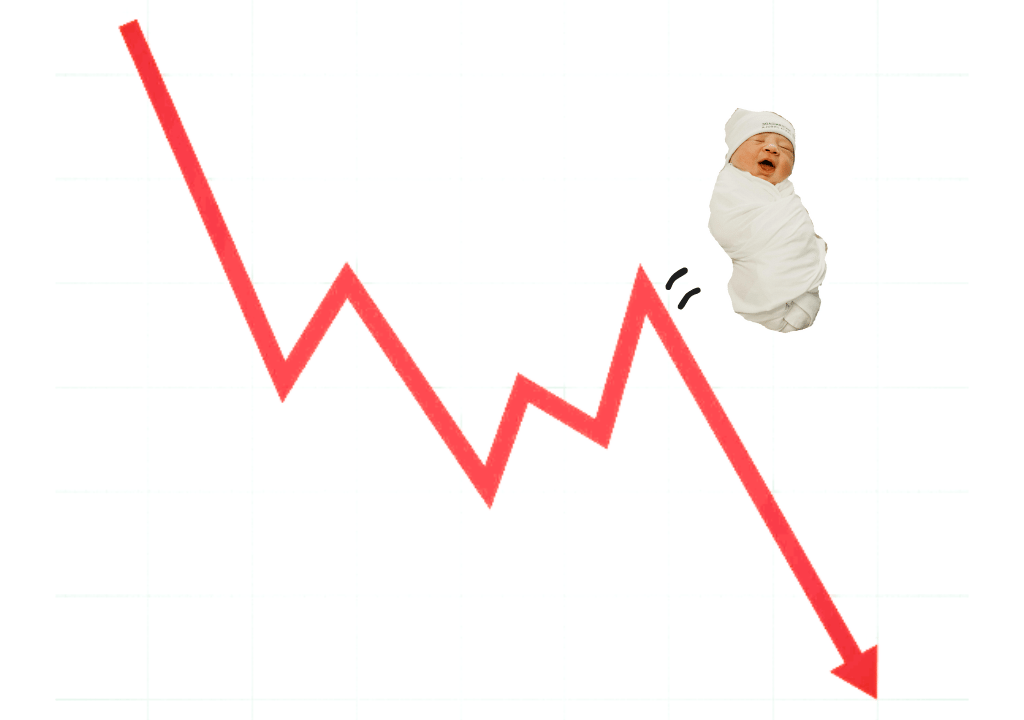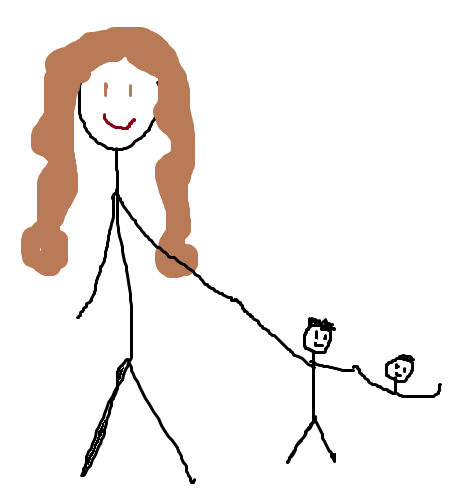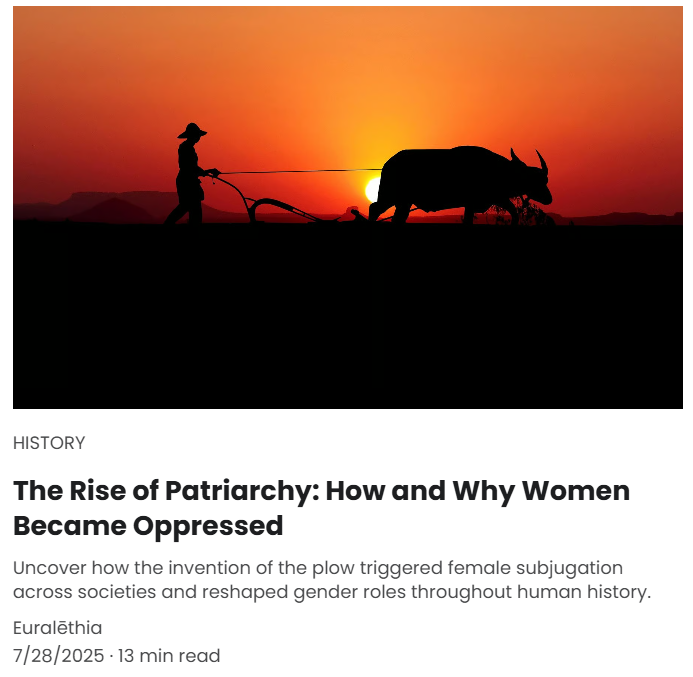Why Does No One Want Kids Anymore?
Shifting values and career priorities or something else? What’s really behind the growing trend of childfree living and what does it mean for our future?
WHAT THE HECK?


I remember this being just 10 years ago, when saying you didn’t want children was mostly met with these visceral reactions, like you’d just confessed to a crime.
- What?!
- Why?!
- You’ll change your mind some day!
Or my favorite
- How?!
Yeah, believe it or not Karen it IS biologically possible not to have children. They don’t just spawn in you once you turn 25.
Nowadays if you say you do want children, well, most people will have a “you do you” attitude or not really care, but every once in a while, you gotta be prepared for some passive-aggressive patronization disguised as compassionate concern.
- You know they’re very expensive, right?
- You still have plenty of time to change your mind.
Or my favorite
- Are you sure you know what you’re getting into?
Are you sure you knew what you were getting into when you asked that question, Jessica? Because questioning my life decisions that don’t affect your ash in any way can only get you into a lengthy argument with me. And trust me you do not want a lengthy argument with me!
It’s wonderful fighting these imaginary people! I should do this more often, really helps relieve the stress...
But back to the main topic, why has it become so common nowadays for people to completely opt out of having children? Well, things are complicated and they involve various factors.
Economic Barriers
"Give me money! Money me! Me a money needing a lot now"
- Charlie’s mom[1]
Yeah, no kidding. Life itself is a lot more expensive nowadays. Rent has become outrageous everywhere and owning your own home is but a dream for many. On top of that jobs seem harder than ever to find, AI is slowly replacing us and the jobs we have aren’t stable. If you haven’t been hit with a wave of anxiety or existential dread yet feel free to look at these stats! Nearly half of the renter households in the US spend more than 30% of their income on housing costs[2] In the UK, house prices rose more than 60% between 2010 and 2022, while wages only increased by 30%.[3] Job growth has become the weakest since 2010, with long-term unemployment rising and private-sector hiring going down sharply.[4] And on top of all that, approximately 27% of jobs are at risk of automation due to AI.[5] Any anxiety now? No? Well, hello there, Elon Musk!
Anyhow, if we barely have enough to live and can’t afford roofs over our heads, how are we supposed to think about making children? Especially since raising a child is, funnily enough, no small feat. The average cost of raising a kid from birth to age 18 (excluding college) is estimated at over 300,000$ when adjusted for inflation and housing.[6] Whomst’d’ve this money?! Also let’s do a bit of math here 300,000$ in 18 years is around 1400$ a month you could have invested in something else. If you were investing strategically, choosing not to have a child could turn into 620,000$ in your bank account, assuming an 8% annual return compounded over time. Holy molly! Is there anyone here who still wants to have a child? Anyone?!
And so, it seems that the answer is straight-forward: if people had more money and better conditions to raise them in, they would have more children. And the empirical evidence saaaays:
NOPE.
It has been tried. In multiple countries, in different ways. South Korea spent $200B over 16 years on pro-natal policies, baby bonuses, cash rewards, state-sponsored dating events and more and still its fertility fell by 25%.[7] France spends more of its GDP on pro-natal policies than any other OECD member country and yet in 2023 it saw its lowest birth rate since World War II.[8] Japan has been trying to solve its baby problems for decades. It started expanding childcare, giving more paid parental leave, and child benefits, but it just wasn’t enough to motivate people.[9] And it might just be that people are simply smarter than their governments because everyone can see that whatever it is governments offer cannot compare to 300,000$. No country is giving that much to each family.
So, let’s look at the list of countries with highest birthrates. They must be doing something right. Maybe giving more paid parental leave, or paying parents more to have children or...
1. NIGER
2. CENTRAL AFRICAN REPUBLIC
3. CHAD
4. SOMALIA
5. DR CONGO
6. MALI
7. ANGOLA
8. NIGERIA
9. BENIN
10. TANZANIA[10]
Right, as it turns out those are some of the poorest countries in the world right now. So why are all the developed countries wasting millions on all these childcare benefits? It evidently runs contrary to the solution: just make the population super poor! It saves the country so much money and fixes the underpopulation problem! Ain’t I a genius?! Euralethia for president 2028! On a more serious note, the story is yet again a lot more complicated. So DON’T get any ideas governments!
Women’s education and freedoms
“There’s a lot of countries in the world that treat women badly.
That’s messed up!
...But they got the best food”
- Andrew Schultz[11]
As you may have noticed the countries on that list also happen to not be the most feminist, shall we say. And what do non-feminist countries do to women? Make them into baby making factories. So, I was thinking, right, not only is making the whole population devastatingly poor a brilliant solution to this problem, we should also take away educ- Hey! Don’t tighten the straightjacket yet...Nurse, please, I just need to finish this one blog post...Thank you!
As I was saying... When a woman can choose her own path, she is much more likely to choose personal fulfillment and education. This doesn’t necessarily mean having no children but what it does mean is that she’ll have to juggle career ambitions and staring a family which naturally makes her prioritize one of the two.
What often happens then is that many educated women postpone starting a family or forgo it altogether. Especially when we know that mothers on average earn less than childless women, even after adjusting for education and hours worked.[12] In some countries, like Denmark, it’s especially bad. Over there, college-educated women experience a 27% earnings-drop in the year after having their first child.[13]
Sometimes it’s not even about women not wanting children. A study across European countries found that women with university degrees often have about 0.8–0.9 fewer children than they originally wanted.[14] Now, I know this is an average but whenever I read something like this, I can’t help but imagine:


Woman with her 1.2 children
Also, let’s not forget that children haven’t always been what they are today. For most of history, they weren’t little bundles of joy, little cutie patooties, lil...*spins wheel* snuggle-wuggle muffin sugarplums. They were unpaid labor. From a young age, kids helped out however they could, on farms, in workshops or around the house. They didn’t go to school for 12 years or require constant entertainment and supervision beyond toddlerhood.
Today, kids are more like luxury pets. Like...super luxury pets. They don’t generate productive value, they consume it. And once they do start working, it’s not for their parents, but for their own benefit. Children were once a great contribution to the household economy, while now they’re a financial drain on it. So, is it really any surprise that people’s attitudes have changed?
This might also explain why fertility rates remain high in poorer countries. In many of those places, children still function as slav- I mean, part of the household workforce, and fewer of them go through long formal education. In that context, having more kids still makes perfect economic sense.
Now you won’t believe what I’m about to tell you next. It turns out, when people know how not to make babies they tend to have fewer babies. Revolutionary! Widespread access to birth control and actual education on it have been game-changers for birth rates. When women can control if and when they get pregnant, they delay having kids, space them out, or decide to skip the whole thing entirely. And with modern contraception being safer and more effective than ever, it's no wonder birth rates are taking a hit.
Again, going back to those poorer countries, they don’t know about this stuff. Contraceptives are harder to get, and sex ed is either wildly outdated or just doesn’t happen which greatly contributes to people having more kids.
Personal beliefs
“Be fruitful, and multiply, and replenish the earth, and subdue it”
- Genesis 1:28
People today demand freedom, but kids don’t give freedom, they are freedom’s natural predator. They devour your time, energy, money, sleep, and your will to live. Modern Western ideology is based on the belief that we’re all main characters in some epic, self-actualizing hero’s journey. We’re told that life is about chasing passions, building empires, traveling the world, experiencing experiences, sleeping with as many people as possible till our hips give out.
Nothing wrong with that, but parenting is the complete opposite. It requires giving that main character role to someone else. A tiny, screaming potato who doesn't even know how to hold its head up, to be precise. And yet, that potato begs for your everything. Sacrificing your dreams, your budget, your sleep schedule, and your sanity for someone who won’t even remember it? In a culture that worships the Self and its experiences? Yeah, that sounds absolutely insane. And honestly, on an intuitive level, it really is.
In the East, there’s just a different flavor of parenting-unsuitable ideology. First off, there's a deep-rooted belief that your entire worth as a human being comes from working yourself into an early grave. Your whole identity is based on getting a good degree and working as many hours as humanly impossible. At the same time, there’s also the idea that being a “good parent” means giving your kids the best of everything and if you can’t do that then it’s best not to have them. Lovely! This weird perfectionism on all fronts creates a painful choice: career or family, but rarely both. As you can imagine this greatly deters people, especially women, from even trying to start a family.
Why especially women? Well, gender roles are still very much alive and well in the East. Unlike in the West, where gender roles have loosened up quite a bit, a lot of East Asian societies still hold on to more traditional expectations. A woman is often expected to take on most (if not all) of the childrearing and housework, even if she’s working full-time. So, it’s no wonder a lot of women are like, “Yeah, no thanks, I’m good.” It’s not necessarily that they don’t want kids, they just don’t want to give up their entire independence, careers, and sense of self to have them.
What’s going to happen if this trend continues?
“I don’t have a good quote for this segment”
- Euralēthia
When birthrates drop, the economy starts to feel it. Fewer babies means fewer future workers, and as older folks retire, there just aren’t enough young people to fill their shoes or their spreadsheets. And this creates labor shortages. Japan’s already deep in it with nearly 30% of their population over 65, and just two working-age people left supporting each retiree.[15] For context, the ideal ratio is closer to four.
With fewer workers, taxes go up, benefits go down, and companies either start throwing bags of money at anyone under 60 with a pulse or swap out jobs for robots. Sure, wages rise, but so do business costs, and guess who gets stuck with the bill? That’s right: you, dear consumer, paying 10$ for a loaf of bread while your raise dissolves into thin air. It’s a vicious little cycle, and it ends with inflation.
Final thoughts
A few decades ago, the big fear was overpopulation and running out of resources. Now? Turns out that was kind of wrong. We’re looking at the complete opposite problem and our future workforce is basically cooked. Maybe people actually listened back then and overcorrected, who knows. Either way, seems like obsessing over current stats isn’t the best way to predict the future. Or maybe we are truly doomed. Time will tell.
Truth is, you can’t really force people to want kids. Not unless you're ready to break out some intense propaganda. And should we really be doing that? Seems a little shady, doesn’t it? But if we don’t do anything, things aren’t looking great either.
Would just informing people about the problem change anything? Make them go “Oh wow, guess I do want a baby now that the entire economy apparently depends on it! Brb, just about to cancel my autonomy and start breeding!”? I kind of doubt it.
But hey, what do you think the solution is? Is there a way out of this? Let me know.
Euralēthia
Liked this post? Then you’ll probably want to check out this article too. It’s about how half the population (women) got turned into second-class citizens over the course of history.
Subscribe to the newsletter
Get updates on new posts, projects, and occasional thoughts and reflections! Basically, whatever's on my mind straight to your inbox.


